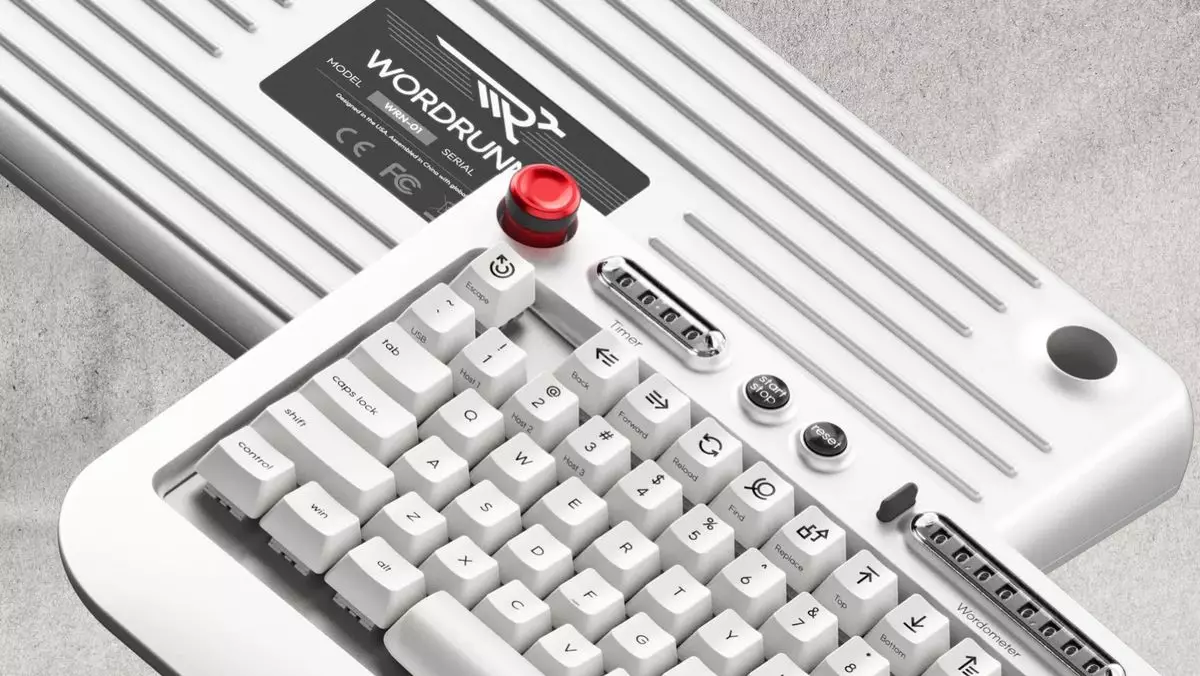In an age where distractions are merely a click away, writers continually seek tools that enhance their productivity while minimizing interruptions. Astrohaus has long been a pioneer in this department, developing products like the Freewrite series that prioritize the writing process. Recently, at CES 2025, the company unveiled the Freewrite Wordrunner—a device that shifts the focus from the screen to the keyboard, heralding a new direction for writers everywhere. But does this new gadget genuinely meet the needs of modern writers, or is it simply another gimmick?
The Concept Behind the Wordrunner
The Freewrite Wordrunner represents a significant evolution in Astrohaus’s approach to support writers. Unlike its predecessors, which featured e-ink displays promoting a minimalist writing environment, the Wordrunner takes things a step further by eliminating the screen altogether and reimagining the keyboard as a central writing tool. By incorporating a word counter, timer, and dedicated function keys tailored for writing tasks, the Wordrunner endeavors to transform the keyboard into a “writing companion,” as described by CEO Adam Leeb. This innovation invites questions about the relevance of traditional software tools and whether writers are ready to embrace a keyboard-centric strategy.
The introduction of a dedicated word counter tracking your progress and a timer for techniques like the Pomodoro method suggests an understanding of the mechanics of focus. The joystick feature, designed for media control, seems to express a desire for multitasking in writing, which can often be both a gift and a curse in maintaining concentration.
One of the more intriguing aspects of the Wordrunner is its ambition to promote distraction-free writing. However, the fundamental question arises: will this hardware shift translate into a more focused writing experience? While having physical components like a timer and word counter might assist some writers in maintaining momentum, can it genuinely curb the tendency to drift into less productive activities, such as watching a two-hour video on YouTube? This challenge remains one of the most significant hurdles for any writing tool—how to address the author’s mental distractions.
On a technical level, while the mechanical keyboards often provide satisfying tactile feedback, the true measure lies beyond mere specifications. Users long accustomed to the standard feel and response of traditional typing software may find they need time to adapt to the Wordrunner’s distinctive features. It’s one thing to devise additional features for productivity but another to integrate them seamlessly into the writing workflow.
Sound and Feel: The Heart of the Writing Experience
Astrohaus emphasizes a premium typing experience through the Wordrunner’s robust aluminum body and sound-dampening tech. The tactile Kailh switches that the device employs are known for their responsiveness but lack the hot-swappability feature that many enthusiasts often crave. While the sound and feedback that a keyboard offers are critical for prolonged writing sessions, the ultimate verdict on user satisfaction can only arise from extensive hands-on testing. Writers need a keyboard that not only looks good but also feels right, allowing for a comfortable and enjoyable typing experience over hours of engagement.
As of now, specific pricing details for the Freewrite Wordrunner have yet to be disclosed, though a priority access reservation for $1 is already available. Given that previous models, such as the Freewrite Smart Typewriter, command prices upwards of $649, serious considerations about cost versus benefit need to be addressed. Is the convenience and potential productivity boost worth a significant financial investment? Would potential users be better served by enhancing their existing software and keyboard environments instead?
Final Thoughts
The Freewrite Wordrunner is undoubtedly a thought-provoking entry into the writing peripherals market. With standout features designed explicitly for writers, it pulses with the promise of a more streamlined, focused writing journey. Yet, its ultimate success will hinge on user experience, adaptability, and, most crucially, sound and feel during extensive writing sessions. For now, the tantalizing prospect of a writing-centric keyboard offers much to consider, beckoning writers to explore whether this innovation can effectively capture and enhance their craft.

